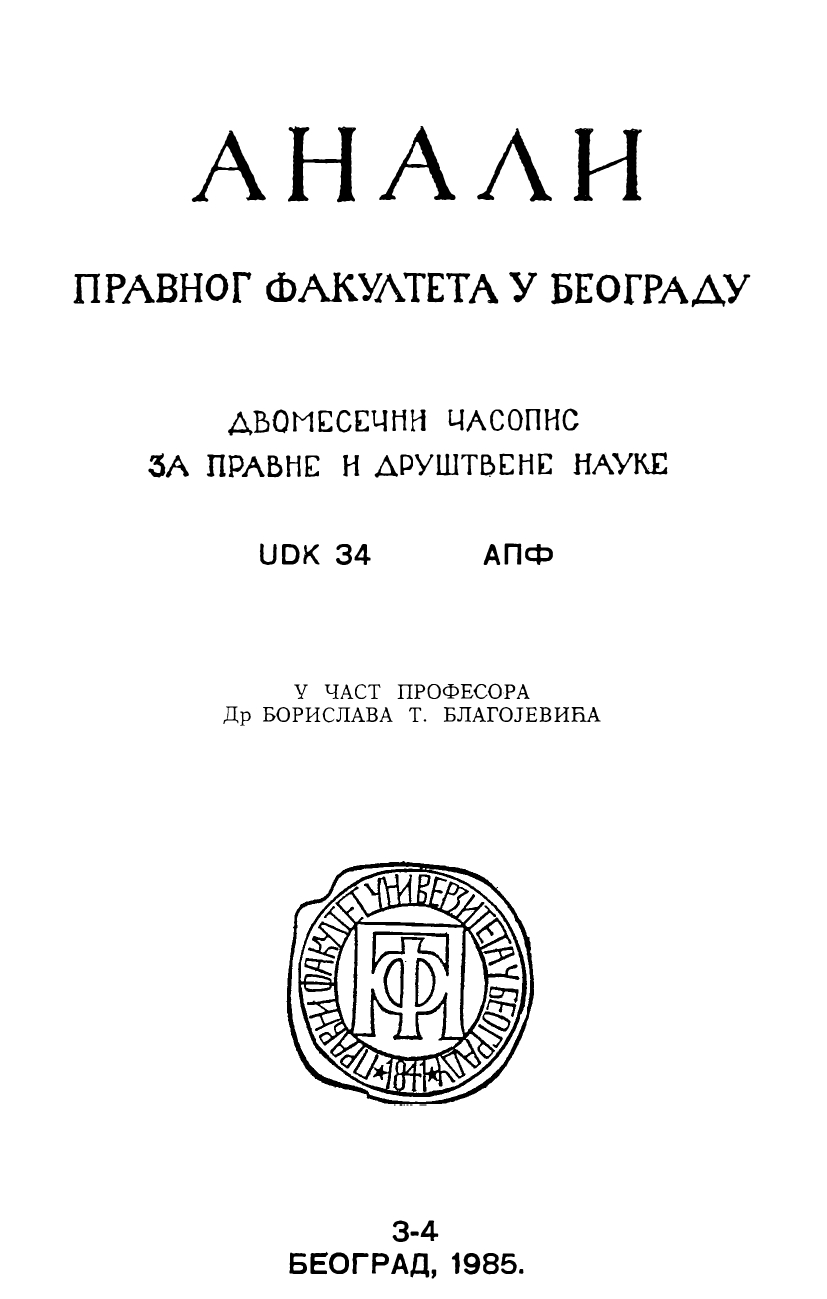БЕЧКА КОНВЕНЦИЈА О МЕЂУНАРОДНОЈ ПРОДАЈИ РОБЕ И КОМПРОМИСИ НА КОЈИМА ПОЧИВА
THE VIENNA CONVENTION ON INTERNATIONAL SALE OF GOODS AND RELEVANT COMPROMISES
Author(s): Jelena VilusSubject(s): Law, Constitution, Jurisprudence
Published by: Правни факултет Универзитета у Београду
Summary/Abstract: The Vienna-Convention on International Sale of Goods, adopted in 1980, in whose drafting and preliminary work professor Blagojević too was rather active, as any other work of unification of law, is based on numerous compromises. The author predominantly studies the adoption of some common law institutes, then the concessions in favour of some East European socialist countries, as well as compromises in favour of the developing countries. The Convention is in its entirety drafted under the influence of the common law system and contains numerous institutes unknown to the continental law. Among the most important are the criteria of »the responsible person« as' contrasted to »the good head of a household« and »the good tradesman« in the continental law, to be followed by the possibility to consider as acceptance of an offer an answer containing additional or different terins which in essence do not alter the terms of the offer. Further criteria of the Convention relate to the principle of »essential violation of the contract«, instead of legal and physical shortcomings of the thing (goods), then to the priority at compensation of damage which is given to fulfilment by paying in kind, as well as to the notion of conformity of goods to the contract, which makes possible to assess shortcomings at the goods specifically, i.e. according to contract. Also significant is the limitation of the amount of damages in proportion to that which was envisaged by the party at the moment of entering into contract or, as ‘the case may be, which the party could have envisage. At the request of the East European socialist countries the possibility of non-implementing the Convention is permitted through the conditional ratification, namely in case the rules of internal private international law directing to the application of internal law of one the contracting states. The author mentions also the important clause relating to compulsory written form of contract on international sale of goods on the ground of conditional ratification, as contrasted to the informality in terms of principle — which was introduced at the request by the USSR. The concessions in favour of the developing countries include the following: the issue of consequences of delay in relation to sending written information on non-conformity of goods (namely, the right is reserved if there is reasonable justification for delay), as well as the criteria for determining the price if it has not been agreed upon in the contract (i.e., the price which was paid usually at the moment of entering into contract).
Journal: Анали Правног факултета у Београду
- Issue Year: 33/1985
- Issue No: 3-4
- Page Range: 351-358
- Page Count: 8
- Language: Serbian

